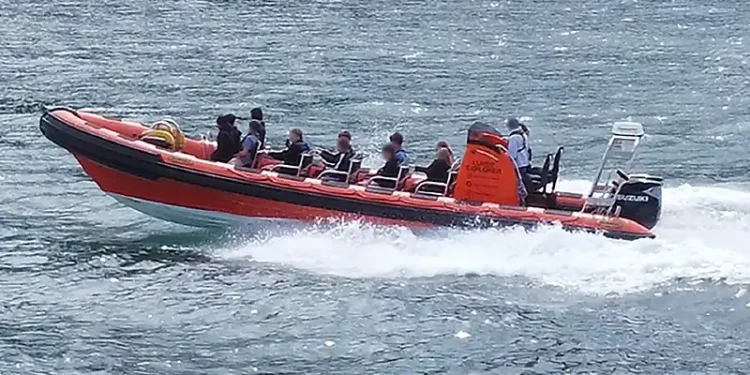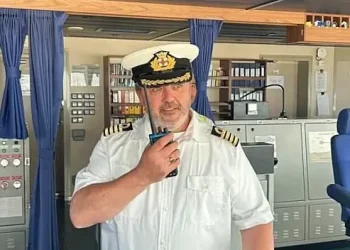A new report has revealed how a routine sea safari in Devon turned into a devastating accident, raising urgent questions about safety on high-speed passenger boats.
Introduction
The Marine Accident Investigation Branch (MAIB) has published its report on the Lundy Explorer accident at Ilfracombe Harbour on 7 June 2023. A passenger sustained permanent paralysis after being thrown from a forward seat on the rigid inflatable boat (RIB).
Investigators identified unsafe seating, poor safety briefings, and gaps in industry regulation.
Background of the Accident
On a June afternoon in 2023, the Lundy Explorer, operated by Ilfracombe Sea Safari, departed the harbour with tourists on board. Conditions initially seemed calm, but the boat quickly encountered rougher seas.
A passenger seated alone in a front “jockey” seat was thrown off balance when the boat struck multiple waves. Despite wearing safety gear, she sustained a spinal injury that left her permanently paralysed. Two other passengers also suffered less serious injuries but later recovered.
Findings from the MAIB Report
Immediate Causes
-
The passenger’s position on the front jockey seat exposed her to the highest shock loads during wave impacts.
-
These seats were poorly designed for single occupancy and lacked protective features.
-
The skipper underestimated worsening local sea conditions as the vessel left harbour.
Contributing Factors
-
The pre-departure briefing did not warn passengers about elevated risks of forward seating.
-
Weather awareness and monitoring tools were insufficient to anticipate sudden changes.
-
Emergency response was delayed, with almost two hours passing before specialist treatment.
Systemic Safety Issues
Seating Design and Passenger Safety
The report highlights that forward jockey seats carry the greatest risk during RIB operations. Within the marine industry, these seats are often dubbed “kamikaze” or “suicide” seats due to the high forces passengers endure.
Inadequate Safety Briefings
Passengers were not provided with tailored guidance on bracing techniques or seat-specific risks, leaving them vulnerable in rough waters.
Regulatory Gaps
Although codes of practice exist for small commercial vessels, many are voluntary and do not specifically address the dangers of forward seating in RIBs.
Issues and Responses
| Issue | Finding/Action |
|---|---|
| Seat Design | Front jockey seats restricted to calm conditions; new monitoring equipment recommended. |
| Safety Briefings | Instructions previously inadequate; operators urged to improve passenger briefings. |
| Regulation | Current codes are broad; calls for mandatory forward seating safety standards. |
| Operator Procedures | Company must adopt a formal Safety Management System (SMS). |
| Emergency Response | Classification delays led to slow specialist care. |
| Wider Context | Pattern of similar spinal injuries noted across UK RIB operations. |
Wider Industry Context
Pattern of Injuries
Since 2001, the MAIB has recorded over 50 accidents on RIBs involving back injuries, with many linked to forward seating. The Lundy Explorer case is not isolated but part of a continuing trend.
Operator and Industry Changes
Ilfracombe Sea Safari has now restricted forward seating during rough conditions. The MAIB is urging all operators to review safety procedures, upgrade training, and install shock monitoring technology.
Effect on Passengers and Operators
The injured passenger, a healthy 28-year-old woman, now lives with permanent paralysis. Her experience underlines how quickly recreational trips can become life-altering events.
For operators, the accident highlights the importance of transparent safety briefings, realistic risk assessments, and adherence to stricter procedures. Regulators are expected to review existing codes and potentially introduce new requirements for RIB operators across the UK.
A Final Summary
The MAIB’s Ilfracombe Lundy Explorer accident report serves as a sobering reminder that safety lapses, even at low speeds, can result in devastating consequences.
By addressing seat design flaws, strengthening safety briefings, and updating codes of practice, the industry can reduce the risk of similar tragedies.
Sources: Marine Accident Investigation Branch.
Prepared by Ivan Alexander Golden, Founder of THX News™, an independent news organization delivering timely insights from global official sources. Combines AI-analyzed research with human-edited accuracy and context.









